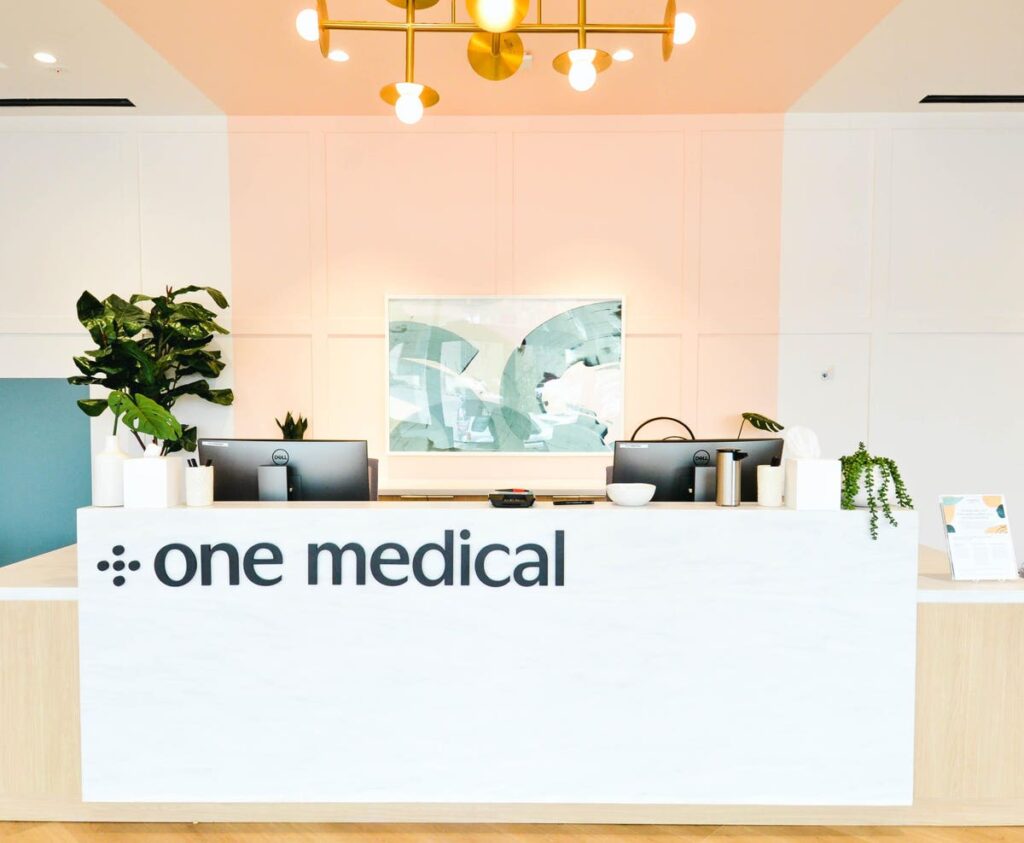Less than eight months after Amazon purchased One Medical for nearly $4 billion, the online retail … [+]
Less than eight months after Amazon purchased One Medical for nearly $4 billion, the online retail giant is focused on “bringing more services in markets where we operate,” top healthcare executives said Monday.
In an interview at HLTH 2023 in Las Vegas, Neil Lindsay, senior vice president, Amazon Health Services and Dr. Andrew Diamond, chief medical officer at One Medical, said they are engaged in a “very disciplined approach” to expansion with no particular growth target for adding physician offices, clinics or entering new markets. Rather, expansion of offices and clinics will depend on markets, especially given challenges recruiting physicians amid a national doctor shortage.
One Medical owns and operates more than 220 doctor offices in nearly 20 U.S. metropolitan markets across the country. The sites include One Medical primary care offices, senior health offices specific for patients covered by Medicare, direct primary care clinics, and primary care offices for specific employee populations, the company said.
With statistics showing 40% of Americans don’t have a primary care provider, Amazon and One Medical see a rich target market. “These are opportunities where we can make things easier for people,” Lindsay said.
Amazon’s proposed acquisition of One Medical comes during a period of unprecedented competition for primary care doctor practices with Walgreens spending billions of dollars opening hundreds of physician-staffed clinics with partner VillageMD while Walmart continues a market by market approach to its doctor-staffed clinics under the Walmart Health brand in certain states. Meanwhile, CVS Health spent more than $10 billion this year on its acquisition of Oak Street Health, adding a large network of doctor-staffed clinics primarily used by seniors.
Lindsay said Amazon’s healthcare strategy is targeted in three areas given its One Medical purchase and its Amazon Pharmacy business, which includes the online pharmacy Pillpack in 2018.
“How do we make it easier to get care,” Lindsay said. “How do we make it easier to get medications and how ultimately do you get people to stay well.”
Looking ahead, Amazon isn’t ruling out partnerships with providers of durable medical equipment or healthy foods and meals.
“We don’t need to do everything ourselves,” Lindsay said. “Sixty percent of everything sold on Amazon is sold by a third party.”


